|
Detail of a Fernando Llort painting, showing his naive style People often ask us about the symbolism behind the naive style of folk art, hand painted on our El Salvadorian products. Each piece reflects the images of the every-day life of the region: birds, flowers, animals, villagers and adobe houses. The images come from both what the artisans see around them and the spiritual presence of God in their hearts that allowed them to endure the hardships of civil war. The artists put their creativity and personality into each item so that the colors and designs are 100% unique. Concern America works with the cooperative La Semilla de Dios ("The Seed of God"), which was founded August 27, 1977. Among the founders was the painter Fernando Llort, who sparked the now-famous La Palma artisan movement. Fernando's art is heavily influenced by the Mayan culture, and he has been able to mix modern ideas with a naive style of drawing. Walking through the streets of La Palma as a young man, Fernando found a kid rubbing a little seed against the ground, and discovered that it had a white surface with a brown frame, "a framed painting" he thought, and he painted it with very small and colorful drawings. Map of La Palma Region in El Salvador Portrait of Fernando Llort That episode lead to the creation of the first workshop in La Palma, "La Semilla de Dios" (The seed of God), in reference to the seed that started it all. There, Fernando would start teaching the people from the town to draw and paint; an artisan movement was born, and La Palma went from being a mainly agricultural town, to one driven by art. Fernando's dream was now a reality and his idea would become the main source of income for a lot of families in La Palma, and would also transform the town into one of the most visited spots in El Salvador. The cooperative now owns a piece of land in the mountains outside of town where they plant and sustainably harvest the trees that supply about 40% of their seeds and wood. The income provides better nutrition and educational opportunities for their children and grandchildren. To see our gorgeous selection of El Salvadorian crafts, please visit our shop. Some of the fairly traded Crafts are for sale in our Marketplace
2 Comments
Backstrap weaving is an ancient art practiced for centuries in many parts of the world. Peru, Guatemala, China, Japan, Bolivia, and Mexico are a few of the places they use the backstrap loom. Today it is still used on a daily basis in many parts of Guatemala and Mexico by Mayan women to weave fabrics for clothing and other household cloths. For the most part, the backstrap loom consists of sticks, rope, and a strap that is worn around the weaver's waist. This strap is how the backstrap loom received its name. The loom is very lightweight, which allows the weaver to work indoors, or outdoors, weather and children permitting. The primary feature of the backstrap loom is that the lengthwise threads (warp) are stretched from a fixed device such as a post or tree to a belt that a person wears around their waist. By backing away from the post or tree, the user can pull the warp threads into tension. In order to weave, the threads must be stretched in a horizontal direction and a means must be provided so that the threads can be separated into two (or more) parts so that a weft thread can be passed between the two sets of threads. The two sets of warp threads can then be reversed and a weft thread passed through again. By repeating this process, fabric can be woven. Many weavers incorporate intricate embroidery patterns within their weavings. Young girls begin learning how to weave at about 7 years of age. By the time girls are ready to marry and have their own home they are extremely skilled weavers. Concern America purchases many gorgeous Fair Trade weavings from co ops in Guatemala and Mexico. One of our most cherished times is when the packages arrive and we can actually smell the smoke from the weaver’s kitchen fires inside the boxes. We get the sense that their spirit is woven into each thread. 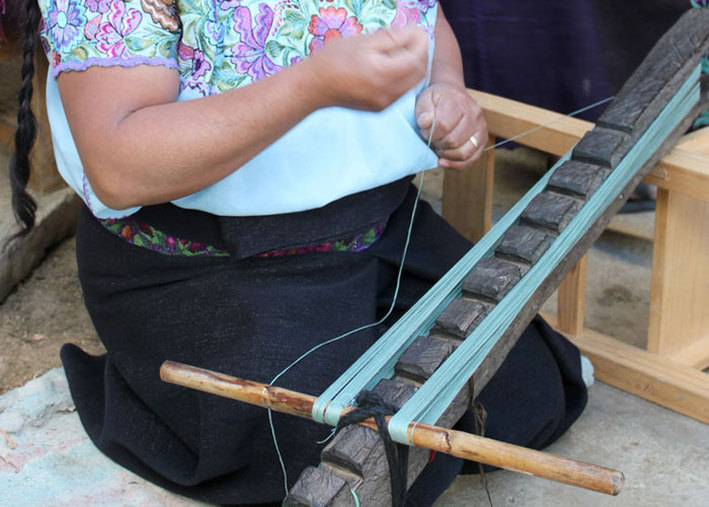 First, the warp threads must be created with this notched wooden tool that measures the length needed, as well as positions every other thread to be able to move as a set, up or down in harmony with each other. 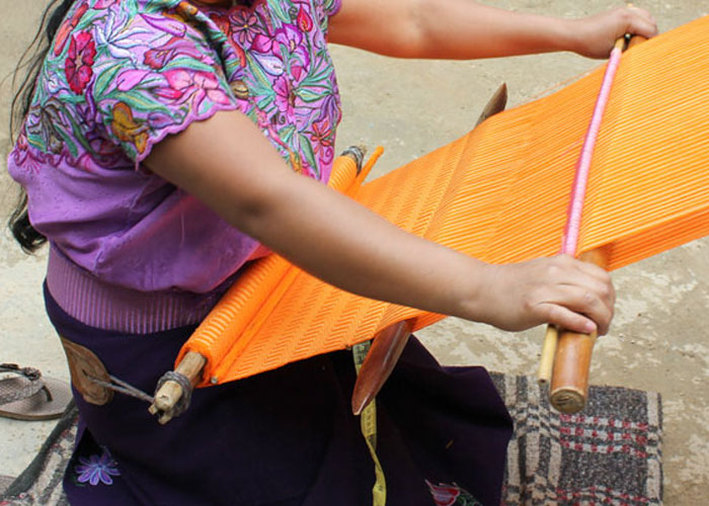 After the warp threads are secured to a post or tree, (some women even use their toes), the backstrap loom is attached to the weaver’s back as she kneels on the floor. 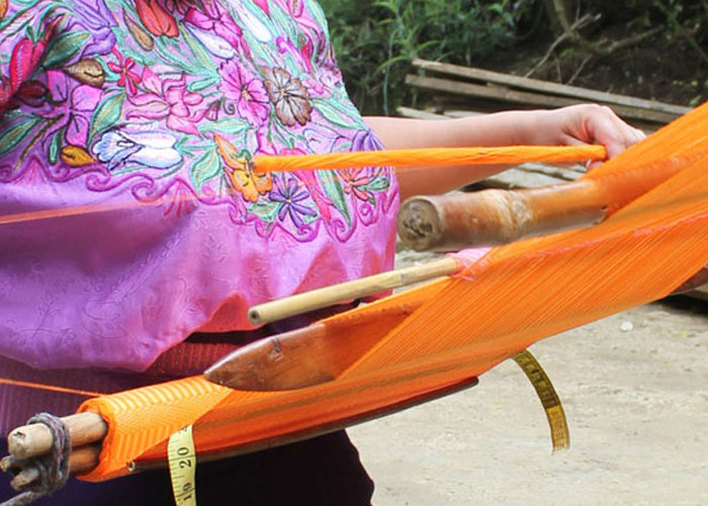 Back and forth the shuttle goes, carrying the weft thread with it. Every pass must be beaten in position with the beater. The process is slow and hard on the legs, yet very rhythmic and soothing. From just a few well-placed sticks, the humble backstrap loom is behind some of history's most beautiful and complex textiles. You can purchase these lovely fairly traded Guatemalan scarves in our Marketplace.
|
Categories |
|
Concern America
Santa Ana, California 1-800-CONCERN (266-2376) Monday - Friday: 8:00am - 4:00pm PST |
|

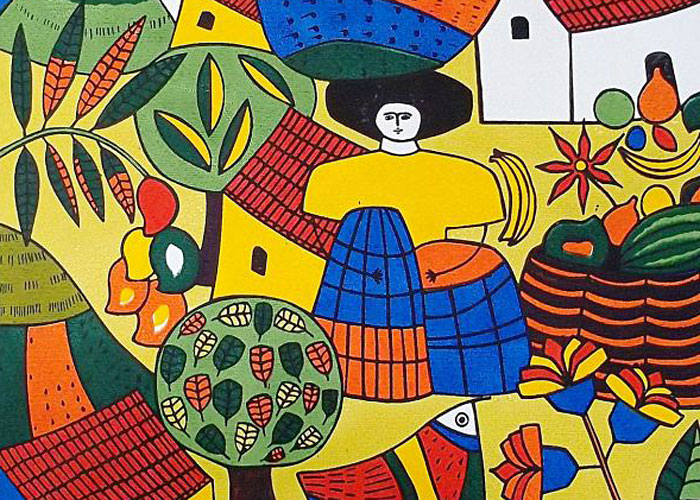
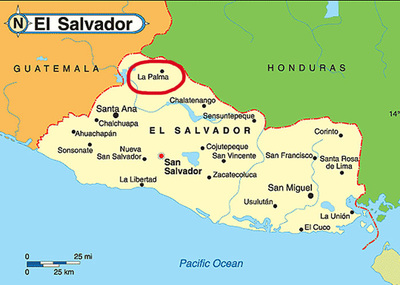
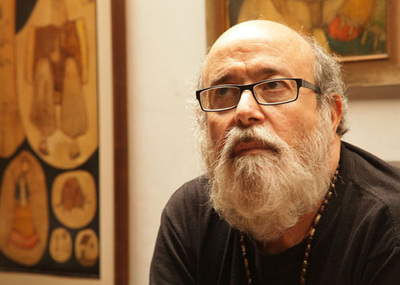
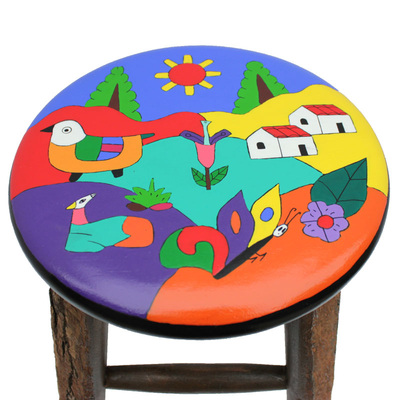
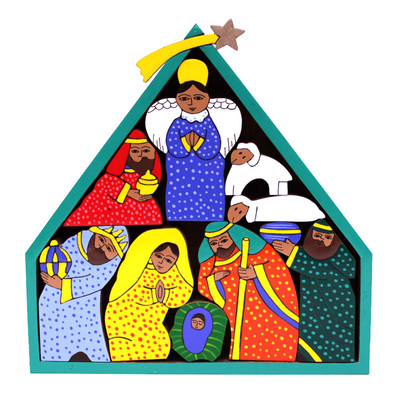
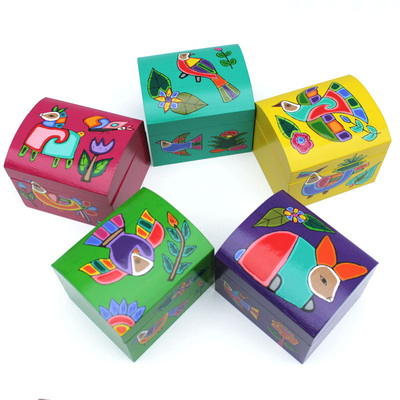
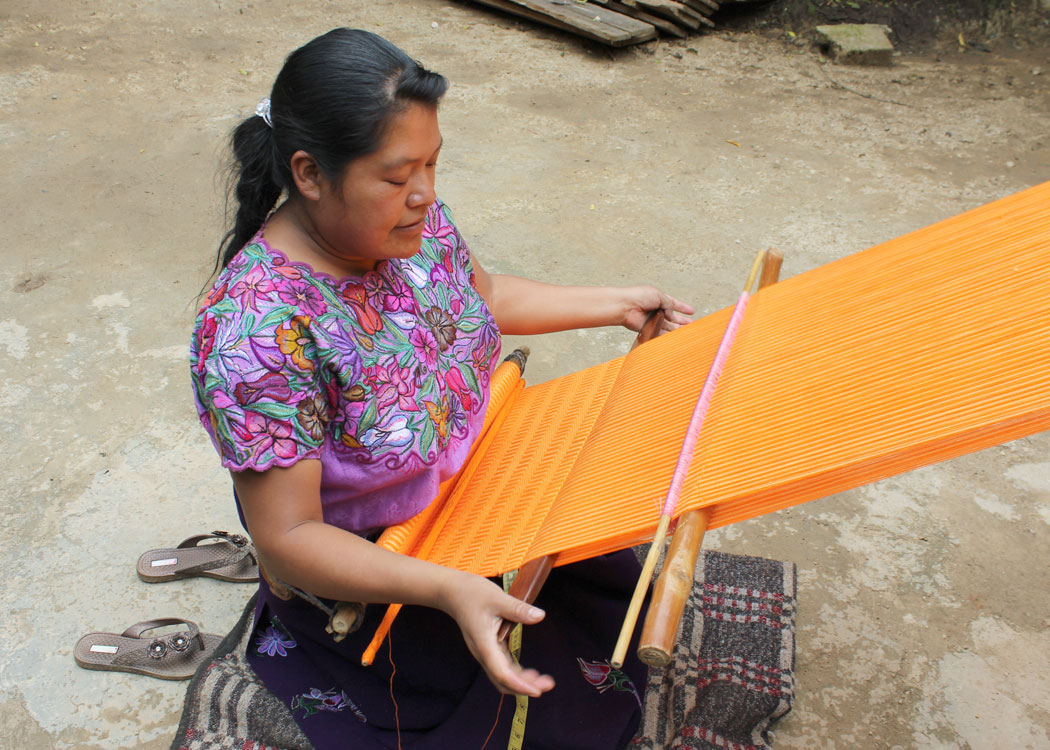
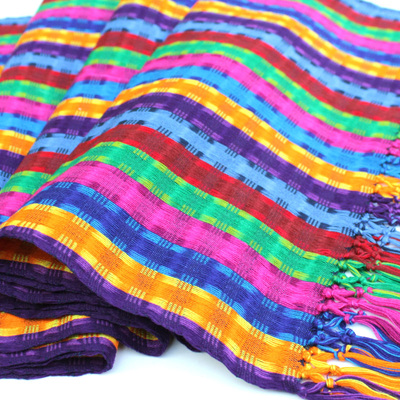
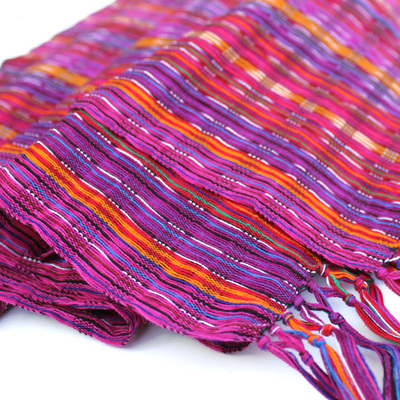
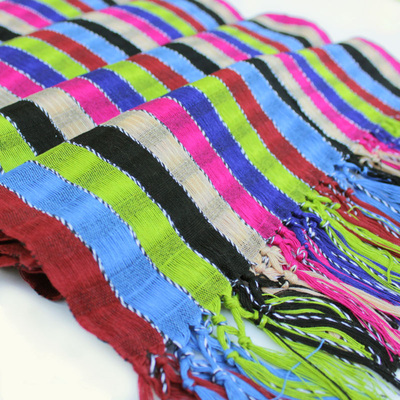
 RSS Feed
RSS Feed